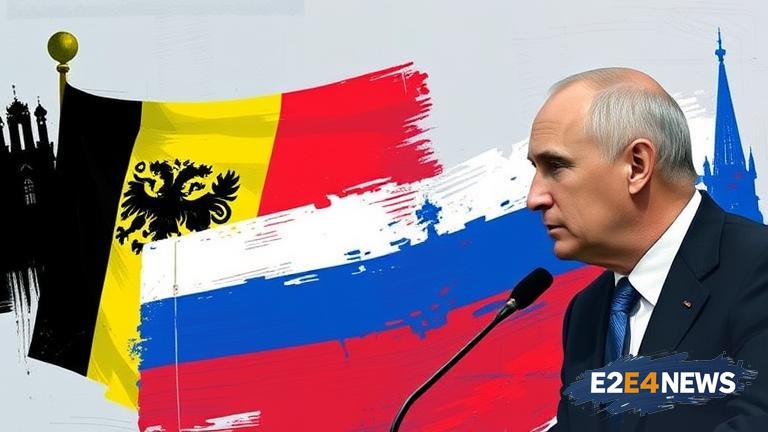The Belgian Prime Minister has recently stated that it is in the best interest of the European Union to leave the frozen Russian funds in Euroclear, a Belgium-based financial services company. This decision comes amidst ongoing geopolitical tensions between Russia and the Western world. The Prime Minister’s suggestion is aimed at maintaining economic leverage over Russia and ensuring compliance with international sanctions imposed on the country. The frozen funds, which amount to billions of euros, have been a subject of debate among EU leaders, with some advocating for their release and others pushing for their continued freeze. The Belgian Prime Minister’s stance is seen as a pragmatic approach, taking into account the potential consequences of releasing the funds, including the possibility of Russia using them to finance its military activities. The EU has been cautious in its dealings with Russia, particularly since the onset of the conflict in Ukraine. The frozen funds are a result of sanctions imposed on Russia by the EU and other Western countries, aimed at limiting the country’s access to international financial markets. The sanctions have had a significant impact on the Russian economy, with the country’s GDP experiencing a notable decline. Despite this, Russia has continued to pursue its military objectives, including its involvement in the conflict in Ukraine. The Belgian Prime Minister’s suggestion to keep the frozen funds in Euroclear is seen as a way to maintain pressure on Russia to comply with international demands. The EU has been working closely with other Western countries to ensure a unified approach to dealing with Russia. The frozen funds are just one aspect of the broader sanctions regime imposed on Russia, which includes restrictions on trade, travel, and financial transactions. The EU has also been providing significant financial and military aid to Ukraine, aimed at supporting the country’s efforts to defend itself against Russian aggression. The conflict in Ukraine has had a significant humanitarian impact, with thousands of civilians caught in the crossfire. The EU has been working to provide humanitarian assistance to those affected, including food, shelter, and medical aid. The situation in Ukraine remains volatile, with ongoing fighting between Ukrainian forces and Russian-backed separatists. The EU has been calling for a peaceful resolution to the conflict, with a emphasis on respecting Ukraine’s sovereignty and territorial integrity. The frozen funds in Euroclear are just one part of the broader economic landscape, with the EU and other Western countries working to limit Russia’s access to international financial markets. The Belgian Prime Minister’s suggestion is seen as a way to maintain economic leverage over Russia, while also ensuring compliance with international sanctions. The EU will continue to monitor the situation in Ukraine and adjust its approach as necessary, with the goal of achieving a peaceful resolution to the conflict. The frozen funds in Euroclear will remain a key aspect of the EU’s approach to dealing with Russia, with the Belgian Prime Minister’s suggestion providing a clear direction for the bloc’s policy. The EU will also continue to work closely with other Western countries to ensure a unified approach to dealing with Russia, including the imposition of sanctions and the provision of aid to Ukraine. The situation in Ukraine remains a major concern for the EU, with the bloc committed to supporting the country’s efforts to defend itself against Russian aggression. The frozen funds in Euroclear will remain a key tool in the EU’s approach to dealing with Russia, with the Belgian Prime Minister’s suggestion providing a clear direction for the bloc’s policy.
